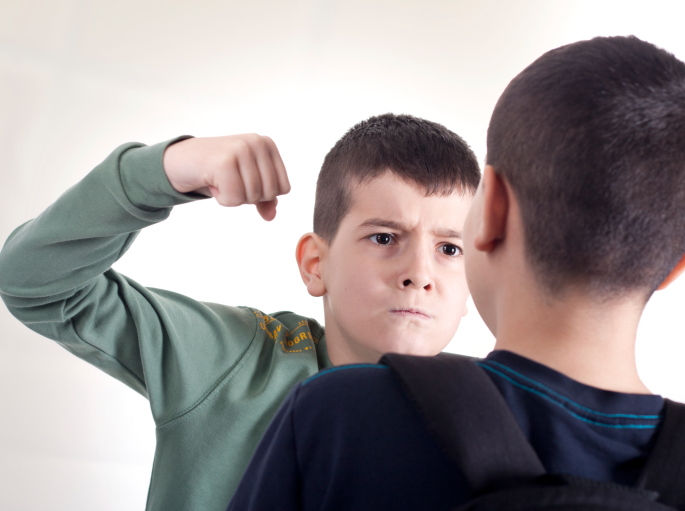At school, bullying can incorporate much more than just one student pushing or shoving another. Bullying actually represents a wide variety of behaviors, such as physical and verbal aggression, emotional aggression (for example, spreading rumors or gossip), sexual aggression and cyberbullying.
Bullying is the first form of violence that many children and teens experience. Youth bullying is a significant problem nationwide. According to Pacer’s National Center for Bullying Prevention, statistics show that 160,000 children in the U.S. miss school each day as a result of being bullied.
Bullying doesn’t just damage the child who’s being bullied—since being in an environment where bullying happens isn’t conducive to learning, every student in the classroom can be affected. Children learn best in environments where they feel safe, respected and are encouraged to take risks.
Health Advocate is pleased to share some tips and resources that can help you confront bullying that happens at school.
What to watch out for
What are some common signs to watch out for if you think your child or teen is being bullied? According to http://www.stompoutbullying.org, pay close attention if your child:
• Comes home with torn, damaged, or missing pieces of clothing, books, or other belongings
• Has unexplained cuts, bruises, and scratches
• Has few, if any, friends with whom they spend time
• Seems afraid of going to school, walking to and from school, riding the school bus, or taking part in organized activities with peers
• Finds or makes up excuses as to why they can’t go to school
• Takes a long, out of the way route when walking to or from school
• Has lost interest in schoolwork or suddenly begins to do poorly in school
• Appears sad, moody, teary, or depressed when they come home
• Complains frequently of headaches, stomachaches or other physical ailments
• Has trouble sleeping or has frequent bad dreams
• Experiences a loss of appetite
• Appears anxious and/or suffers from low self-esteem
What to do if your child is being bullied
Teachers and parents can play a critical role in creating a climate where bullying is not tolerated. Collaboration between parents, school personnel and the community is essential in stopping the bullying behavior so that children feel safe and protected. Plus, parents and teachers should talk with children about bullying, letting children know that if they feel they’re being bullied, they should speak up.
If your child is being bulled at school, report the incident even if your child doesn’t want you to get involved. Remember that as a parent, you are your child’s advocate. It’s always important to speak with your child’s teacher first and not go directly to the bully’s parents. For more information on what to do, check out Pacer’s National Center for Bullying Prevention’s helpful resource “Three Steps to Take If Your Child is Being Targeted by Bullying at School.” Go to http://www.pacer.org/bullying/resources/info-facts.asp
If you are a parent of a bullied child, know the laws on bullying. Many states have laws that address bullying, but the laws tend to vary. For information on each state’s bullying and harassment laws, visit http://www.stopbullying.gov/laws/index.html
If you have access to an Employee Assistance Program (EAP) such as the Health Advocate EAP+Work/Life service through your workplace, consider speaking with a counselor who can help you find the right resources to help you and your child handle a bully. You can also check out the following online resources for more information:
http://www.stopbullying.gov– Provides information from various government agencies on what bullying is, what cyberbullying is, who is at risk and how you can prevent and respond to bullying.
www.pacerkidsagainstbullying.org – This site enables kids and teens to take a stand against bullying. It also provides a section where kids can write their stories about being bullied.
www.violencepreventionworks.org/public/bullying_tips_for_parents.page – Provides tips and resources for parents to help their children deal with bullying.
What if your child is the bully?
If you have seen or heard about instances of your child engaging in bullying, Pacer’s National Center for Bullying Prevention recommends taking the following action steps:
• Talk with your child to get a better idea of why the bullying is happening.
• Confirm that their behavior is actually bullying and not the manifestation of a disability.
• Continuously teach your child empathy, compassion and respect—bullying is a behavior that can be “unlearned.”
• Make your expectations clear. Let them know that bullying is not OK, and make sure they understand the consequences that will occur if the bullying continues.
